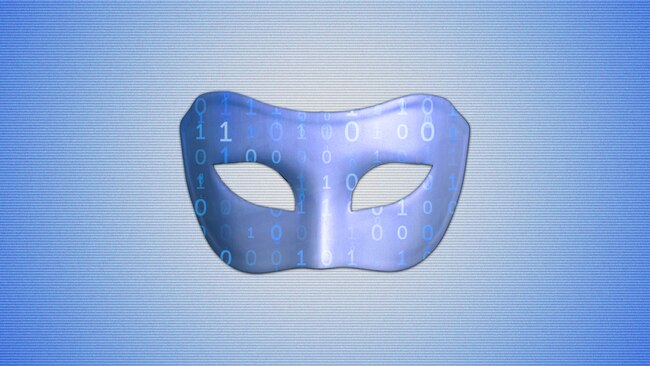How to not get extremely inconveniently hacked
You don’t need to be special to have your identity stolen, in fact, the less special you are, the less likely someone is to question whether the fake you is the real you.

You don’t need to be special to have your identity stolen, in fact, the less special you are, the less likely someone is to question whether the fake you is the real you.
Do you even need anti-virus software in this, the year of our lord, 2022?
You definitely - and I cannot stress this enough – do.
Humankind’s hubris shows itself in many ways: using a $2000 glass phone without a screen protector, jumping on the tram for a couple of stops without a ticket, answering those viral social media questions designed to give up your password recovery answers, and keeping all your important documents on a device that’s one email away from getting utterly hacked.
One recent, painful example of this was Axie Infinity, which you might have heard of as being the world’s largest crypto play-to-earn game. Well, it used to be. One employee went through multiple rounds of interviews at a fake company, before being sent a PDF, which they opened, downloading spyware onto the server, eventually ending in their employer losing $540 million USD. The employee ended up with no jobs. (We know, crypto hasn't got a good wrap lately. If you're interested, this opinion piece really got us thinking).
One in three Australians has been impacted by cybercrime
Now, you might be thinking that that’s a shame for those poor people who got caught up in romance scams, or had their identity stolen. But you are more computer savvy than most people. Besides, who would be interested in stealing your identity? Right?
According to Mark Gorrie, Managing Director at Norton APAC, that’s the trap most people fall into.
“We’re an affluent nation, and so we’re a prime target for scams. You can see it in the Scam Watch data, people are losing millions of dollars through investment scams, romance scams and tax scams.”
“It’s a real ecosystem, it’s not just the one person who develops and executes the scams. Some people create the technology and sell it, someone buys it to use it and harvest the data, and it’s hugely profitable.”
The problem is that you might avoid 99.9% of the emails and texts, but it’s that 0.1% that gets through that becomes the problem. The scammer just needs to get lucky once by catching you when you’re tired, or sending you a ‘missed delivery’ text when you were already expecting one.
If you reuse passwords, just one intercept is a breach across so many accounts, leading to further data loss.
In fact, a recent report from the Australian Information Security Association contained this alarming paragraph:
“In AISA’s survey of members, 62% of respondents had experienced an attack and 76% knew someone who had been impacted by cybercrime. When the 2016 strategy was launched, 1 in 4 Australians was impacted by cybercrime. The situation has deteriorated to the point where 1 in 3 Australians is now impacted by cybercrime, indicating that as a country we are losing the battle to protect businesses, services and the community.”
That sounds bad.
Gorrie says a lot of identity theft happens through credential harvesting when you log in to address a problem in your account, only to give your details away to a bad actor.
Or maybe you’ve clicked a bad link that’s installed spyware. That could be keylogging software to gain access to accounts, or something to go through your photos to find blackmail material, or something that will use your identity as a Trojan Horse to get your family members to give money to a scammer.
You think you’re not special?
And so there’s no reason why people would want to target you, you need to ask whether you really have nothing to lose?
If you have a Medicare card, that can be hijacked so someone else can fraudulently claim covid payments (a very popular form of identity theft during the pandemic). If someone gets enough of your details they can start opening credit cards in your name.
It is extremely easy to call a telecommunications provider and get a new sim card to steal someone else’s phone number and plan, and then you have access to two-factor authentication requestions – you only need to know three things about someone and have a friendly voice to do it.
You don’t need to be special to have your identity stolen, in fact, the less special you are, the less likely someone is to question whether the fake you is the real you.
When it comes to the question of whether you need software that scans for viruses and malware, as well as a VPN, obviously the Norton guy is going to say yes. But he has a point. “Within Australia, just with our Norton customers, just in the last quarter, we blocked 37.1million attacks to their devices. That’s the scale of what’s going on.”
That increase in threats, attempts and scams has been ramping up since the beginning of the pandemic. We all started having to work, shop and live online on their devices, more than any other time before, and some people, whether it’s because they were desperate or just because they were jerks, saw that as an opportunity to strike.
How to protect yourself
I have been using the new Norton 360 Advanced service which includes:
- Antispyware, antivirus, malware and ransomware protection
- 200GB PC cloud backup
- Dark web monitoring
- Social media monitoring (to prevent someone from stealing your Insta)
- A VPN
- SafeCam feature (stops your device’s camera from unauthorised access)
- And identity theft restoration support.
Over the past couple of weeks, the VPN has blocked a couple of sus sites, and I’ve had a few spam texts flagged. But all the stuff that’s been flagged from my social media has been random and hilarious.
If you don’t want to pay for something like Norton 360, there are still a lot of things you can do to keep your identity and data safe:
- Use a password manager like iCloud Keychain (free on Apple devices), or LastPass. They can suggest hard-to-guess passwords, fill them in for you on websites, and notify you when one of your accounts has been compromised.
- Never, ever, use unsecured wi-fi, like hotel or shopping centre free wi-fi – at least not without a good VPN – and especially never use it to do anything sensitive like log into your bank account. It is way too easy to intercept information and access devices on unsecured wi-fi.
- Turn on two-factor authentication for everything, especially your social media accounts and gamertags (while you're here - you might be interested in our entire game review archive)
- Never download an attachment you weren’t expecting, even if it looks legit, without verifying it in some way first.
- Never click links in text messages unless you’re 100% sure it’s legit.
- Always keep your software up to date, including both apps and operating systems.
- Don’t overshare on social media. The only reason why people want to know the name of your first pet, the street you grew up on, your middle name, and your mother’s maiden name is for identity theft purposes. Even if you share this information years apart, the internet never forgets, and people are trawling to scrape the information.
- Be careful about the kinds of devices you allow onto your home network. Lower quality and less scrupulous smart home devices have been used to compromise home networks before, and if someone has access to your cameras, they know the best time to rob your house.
All of this stuff sounds really alarmist and way over the top, but if 62% of trained cyber security professionals are reporting that they’ve been caught up in cybercrime, then no one is immune. It’s about making smart choices to make safety and security easy, rather than having to think about it all the time. Just because privacy is dead, doesn’t mean security has to be.
So, yes. You do need virus, malware and VPN protection, amongst other things.


